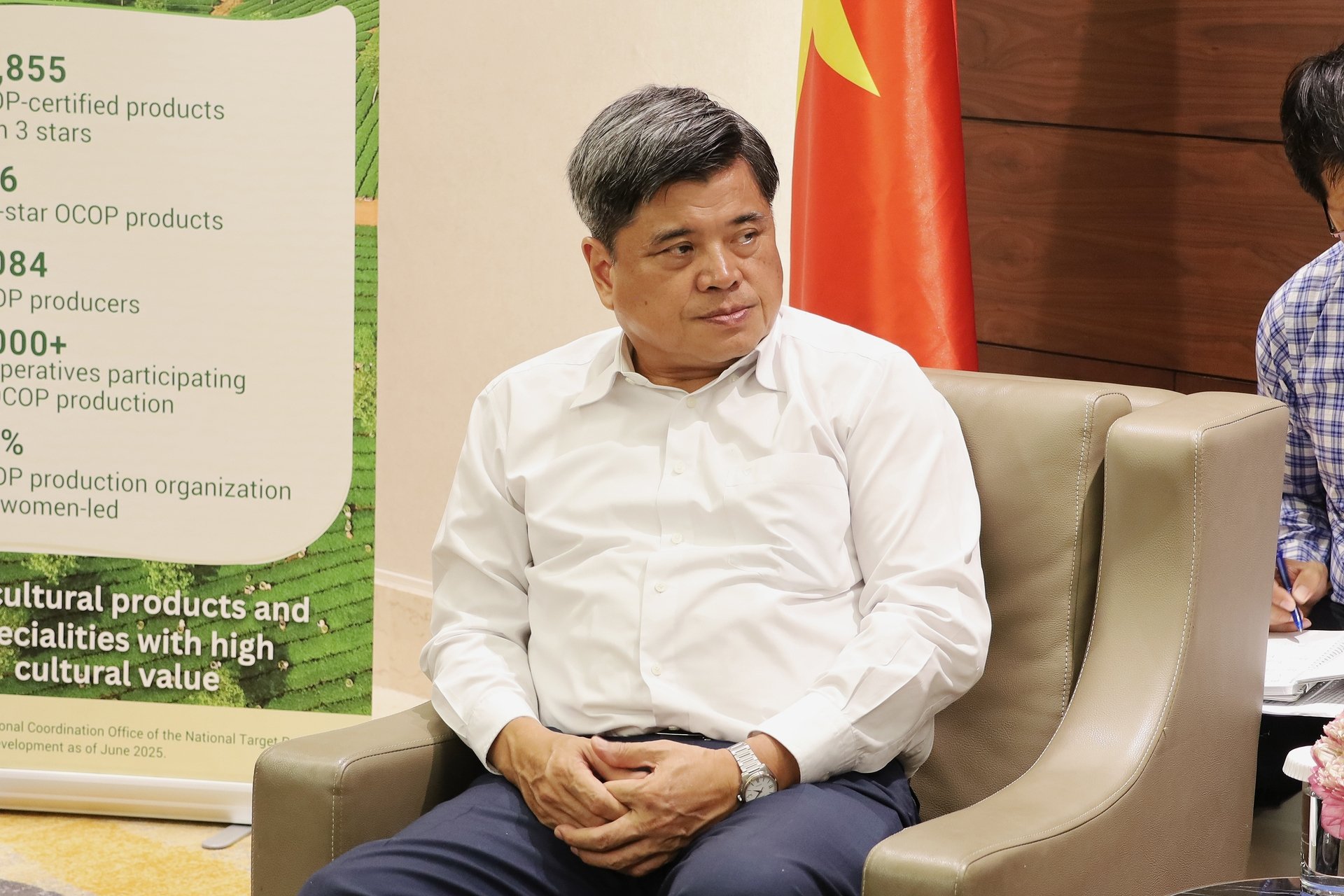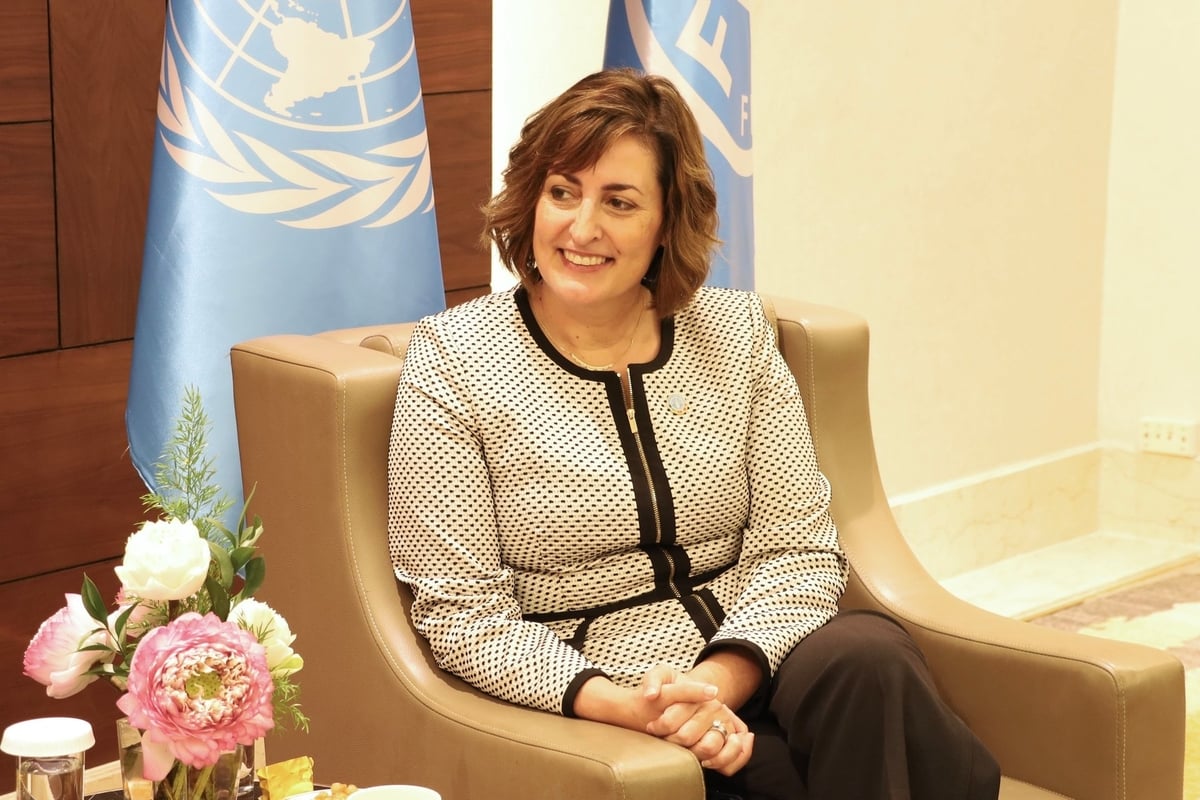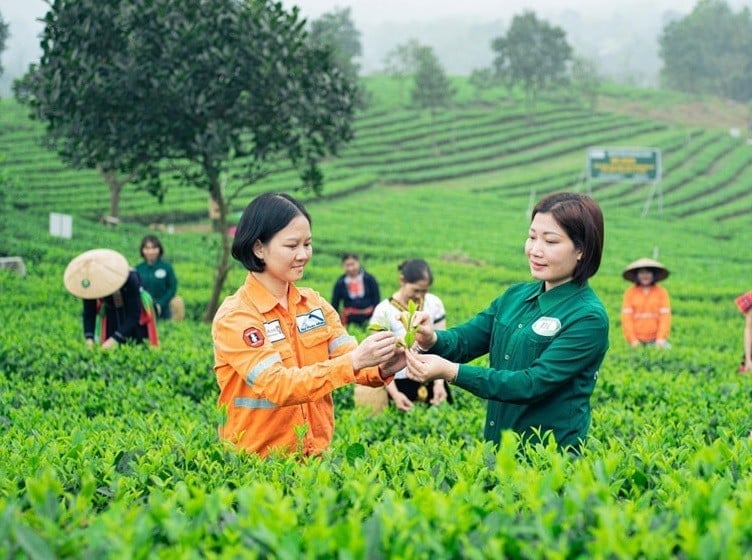December 31, 2025 | 00:54 GMT +7
December 31, 2025 | 00:54 GMT +7
Hotline: 0913.378.918
December 31, 2025 | 00:54 GMT +7
Hotline: 0913.378.918
Speaking at the meeting, Deputy Minister Tran Thanh Nam proudly shared that after seven years of implementation, Vietnam now has over 16,800 OCOP products rated three stars or higher, with 40% of producers being women. The OCOP program has proven to be an effective tool for empowering communities, enhancing their proactiveness and responsibility in leveraging local potential, strengths, and cultural values to promote economic development and improve living standards.

Deputy Minister Tran Thanh Nam proposed that the FAO study and promote the development of a global OCOP ecosystem. Photo: Phuong Linh.
"The OCOP program in Vietnam has unlocked the potential, strengths, and creativity of rural communities," Deputy Minister Tran Thanh Nam remarked. "At the same time, the program has enabled small and medium-sized enterprises, as well as vulnerable groups, to participate in the value chain. Throughout this journey, the Vietnamese Government has continuously provided strong support, creating favorable conditions for rural producers to expand their markets both domestically and globally."
Building on that spirit, Deputy Minister Tran Thanh Nam expressed his hope that the FAO would study and promote the development of a global OCOP ecosystem, fostering a sustainable development network and the commercialization of distinctive products among countries.
"Such an ecosystem would not only help local specialties reach broader markets but also facilitate mutual learning among nations," he emphasized. "This initiative is also fully aligned with FAO's Strategic Framework, which is based on four pillars: better production, better nutrition, a better environment, and a better life."

Ms. Beth Bechdol affirmed FAO’s commitment to supporting countries in the development and promotion of OCOP products. Photo: Phuong Linh.
"FAO is committed to accompanying countries in the development and promotion of OCOP products. We are eager to learn about Vietnam’s journey in building the OCOP program, as well as the valuable lessons in empowering women and vulnerable groups in agriculture," said Beth Bechdol, FAO Deputy Director-General.
Regarding the role of women and vulnerable groups in agriculture, Ms. Bechdol emphasized that this is a crucial factor to ensure inclusivity and sustainability in rural transformation.
FAO also proposed enhancing South-South cooperation through the development of OCOP products. The organization believes that the upcoming forum will be a strategic event, opening up new directions for interregional collaboration in agricultural development and the promotion of local specialty products tied to cultural identity.
Concerning the initiative to build a global network for OCOP products, Ms. Bechdol expressed full support and appreciation for the proposal. She added that at the World Food Forum, scheduled for October 2025 in Rome, she would share insights gained from this event and help bring the global OCOP initiative into deeper international discussion.

Nhat Thuc Tea Cooperative (Thai Nguyen) produces organic tea that meets export standards. Photo: Lang Nghe Viet
During the meeting, Alue Dohong, Assistant Director-General and FAO Regional Representative for Asia and the Pacific, expressed high appreciation for Vietnam’s role as the host of the High-Level Inter-regional Knowledge Exchange on One Country One Priority Product (OCOP) Models.
He emphasized that Vietnam’s OCOP model has been a great source of inspiration for FAO to launch the Global OCOP Initiative, which subsequently evolved into the broader “One Country, One Priority Product” framework. This model has seen growing engagement from numerous countries across different regions. "In light of this success, I fully support Vietnam’s proposal to establish a global OCOP network, with the goal of promoting and commercializing Indigenous specialty products from diverse regions and countries worldwide," Mr. Dohong shared.
Moreover, he proposed that the establishment and development of this global OCOP network should involve the active and coordinated participation of multiple stakeholders, including governments at all levels, international organizations, private enterprises, local farmers, scientists, and research institutions. Such multi-sectoral collaboration is essential to ensure the network’s effectiveness, sustainability, and inclusiveness.
Mr. Dohong also confirmed FAO’s commitment to cooperating closely with Vietnam by providing technical support and leveraging the practical experience gained from Vietnam’s implementation of the OCOP program. He expressed the intention to gradually expand this network beyond Vietnam, encouraging other countries to join and contribute to the shared goal of fostering rural development, preserving cultural heritage, and enhancing economic growth through local specialty products.
On July 15-16, the Ministry of Agriculture and Environment, in collaboration with FAO, will organize High-Level Inter-regional Knowledge Exchange on One Country One Priority Product (OCOP) Models. The forum is held at a time when both parties are simultaneously conducting activities to commemorate the 80th anniversary of the organization’s founding.
Translated by Phuong Linh
/2025/12/29/0829-2-000508_274.jpg)
(VAN) Hai Phong is tightening management, with 100% of fishing vessels licensed and equipped with vessel monitoring systems, joining the national effort to lift the EC's 'yellow card.'
/2025/12/27/2744-1-121716_241.jpg)
(VAN) The Viet Nam Environment Protection Fund is the national environment protection fund and a state financial institution under the Ministry of Agriculture and Environment.
/2025/12/27/2015-2-111213_813.jpg)
(VAN) In efforts to realize the goal of Net Zero emissions, reducing urban emissions is regarded as a key solution.

(VAN) Deputy Prime Minister Tran Hong Ha requested to design the EPR mechanism toward a circular economy that is transparent, feasible, and non-administrative and aligned with actual recycling capacity.

(VAN) On December 24, Deputy Prime Minister Tran Hong Ha chaired a meeting about approving greenhouse gas emission quotas for 2025 - 2026 period.

(VAN) As Viet Nam enters a new era, the national agricultural sector must proactively adapt to global trends to transform current challenges into strategic development opportunities.
/2025/12/18/5046-3-154320_307.jpg)
(VAN) Granting planting area codes is a solution that helps Lao Cai manage forests effectively while also laying a data foundation to support the development of the carbon credit market in the future.